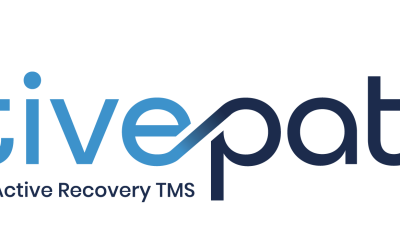Transcranial magnetic stimulation (TMS) therapy has emerged as a promising and innovative treatment option for a variety of mental health conditions. One such condition is obsessive-compulsive disorder (OCD). OCD is a condition affecting over 2.5 million American adults. It is characterized by persistent intrusive thoughts (obsessions) and repetitive behaviors or mental acts (compulsions). Around 70% of those who have OCD can benefit from therapy, antidepressants or a combination of both. However, some people don’t see any benefit or only see a small reduction in symptoms. TMS can help those who don’t experience improvement with traditional treatments.
What is TMS?
TMS therapy involves using magnetic fields to stimulate activity in the brain. It is a noninvasive treatment; it doesn’t require anesthesia or surgery. During the treatment, a patient will sit in a chair while the TMS device is placed on their head. A coil inside the device will generate pulses of magnetic energy to targeted areas of the brain.
TMS for OCD
TMS treatment is most often recommended for OCD when the patient has not responded to at least two rounds of antidepressants. TMS is a noninvasive treatment that targets areas of the brain that are believed to play a crucial role in the development of OCD symptoms. These areas may include the dorsolateral prefrontal cortex, orbitofrontal cortex and the presupplementary motor area. By targeting these areas with TMS therapy, they may be “rewired” to help improve neural networks with the intention of boosting healthier thoughts, moods and behaviors.
TMS therapy offers a number of benefits for people who struggle with OCD including:
- Complement to other treatments — TMS therapy can be used in conjunction with other treatments for OCD. It is often used with exposure and response prevention (ERP) therapy. By using both treatments, it can help enhance the effectiveness of treatment.
- Long-lasting results — With TMS therapy, some individuals with OCD can experience a lasting reduction of their symptoms. This can even continue after the course of TMS treatment has ended.
- Improved quality of life — OCD can affect an individual’s daily life, relationships and overall well-being. By helping to reduce the severity of OCD symptoms, TMS can help lead to an improved quality of life, making it easier to engage in activities, achieve goals, and have a greater sense of emotional well-being that may have been dampened or limited by the grasp of OCD.
- Efficacy — TMS therapy can lead to drastic reduction in the symptoms of OCD. Research has shown that about 45% of OCD patients see the reduction of OCD symptoms one month after beginning treatment. Individuals who have not responded to antidepressants or other OCD treatments can experience relief after beginning TMS therapy. It can be a valuable choice for those struggling with treatment-resistant OCD.
TMS therapy can be an invaluable treatment option for those with treatment-resistant OCD. It can improve the lives of individuals who have long been challenged by the debilitating characteristics of OCD. If you want to know more about the benefits TMS can provide, you should discuss if TMS is the right treatment choice for you with your health care or mental health provider.
Active Path can help you pave the way to recovery with TMS for your OCD
Active Path’s TMS therapy for OCD can help provide substantial relief from the debilitating nature of this mental health condition. TMS can help reduce the severity of obsessions and compulsions. With the benefits of TMS, you have the potential to mend relationships, reignite your passions, and reclaim your quality of life from the clutches of OCD. OCD can be overwhelming and isolating. Active Path can help you reclaim your joy.
Contact our team today for more information or to schedule an initial appointment.





